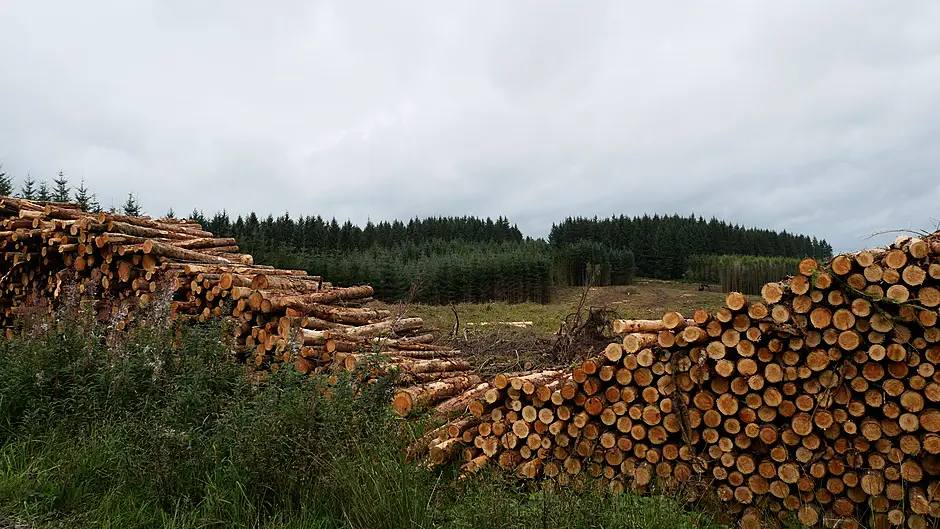THE narrative that agriculture should be singled out for having a greater hill to climb in meeting the country’s climate targets is unfair and wrong.
That was the message delivered by the Minister for Agriculture Charlie McConalogue when he addressed the annual Ludgate Agritech event.
The theme of the event was ‘The Changing Face of Agriculture,’ and the minister said there were so many reasons for the sector to be ‘positive about what is in front of us.’
However, he acknowledged that the sector is going through one of the most revolutionary periods in decades, or generations.
‘This is not rhetoric, but fact. However, for our sector like Ludgate, change, evolution and transition is nothing new as we’ve always moved to adapt to new technologies, pioneer new techniques and target new practices.
‘We’re currently working through some of the most important policy decisions in many years. The formation of our new Cap strategic plan is occurring at the same time as we are carefully plodding our way through the climate action plan, as well as the new nitrates action plan.
‘All of these will leave an indelible mark on our sector for many years. These key policy decisions will make a very significant impact on agriculture but I entirely reject the notion that any of these must be negative or destructive. We will evolve, we will change, we will transition and adapt but this will be for the better.’
Minister McConalogue continued: ‘It is fair to say that our sector is facing into a very different decade to the one we’ve just experienced. The last decade was one of void and growth; the next decade will be one of sustainable value and growth.’
He concluded by saying that the sector ‘can and should’ be excited about the changes ahead.
‘The agri sector has been one long evolution. We will put farming on a firm footing with a bright future.’
Brendan Gleeson, secretary general of the Department of Agriculture, told the virtual conference that given events of the last two years the sector was ‘in pretty good shape.’
‘Critical supply chains have continued to function, the value of exports to the UK have held up despite Brexit and commodity prices are strong. Of course inflationary pressures that are affecting many sectors across the globe are beginning to bite and there are emerging supply issues with fertilisers and that’s a real concern, but overall the sector has shown tremendous resilience in the face of Brexit and Covid.’
That said the sector, he said, ‘was facing a number of significant policy developments which in an ideal world you might choose to sequence differently.’
‘But they’re with us now and we have to get on with dealing with them,’ he said admitting that sectoral emission ceilings which will be decided next year will be ‘incredibly challenging.’
Chair of the event Justin McCarthy put it to him that reaching the proposed 22-30% emission reduction targets would mean a hit of between €1bn and €4bn to economic activities in rural towns, according to a KPMG report. Yet, he said, Cap was being repurposed to support farmers in their climate transition, and that there wasn’t any ‘new money’ being made available to them.
Mr Gleeson said they didn’t have all the answers, but he pointed to emerging and developing technologies and a ‘significant financial commitment from government.’
IFA Munster regional chair Harold Kingston positively pointed out that where you have deadlines, in turn you attract funding which in turn attracts scientific interest.
‘Think of Covid and vaccines – suddenly there was a challenge so the scientific community got on board, and funding got on board,’ he said.
However, he questioned if the government was really serious about delivering emission reductions through science and mitigation, or if the ‘easy cop out’ would be to simply reduce activity.
‘There’s a narrative out there that reducing climate emissions through reduction of animals is the only way we can do it,’ he said.
He said that as a grassland farmer his ability to sequester carbon was limited, and he said the potential is in forestry.
‘But the IFA couldn’t in our conscience recommend to any farmer to plant forestry, because we don’t know if they can harvest it. There’s a major difficulty there. It’s very confusing for farmers.
‘We can deliver a lot, but it’s not being counted.’
The Courtmacsherry farmer said it was an ‘incredibly exciting time’ to be involved in farming and mentioned research at the Bantry Marine Research Station to show how a certain strand of Irish seaweed — asparagopsis armata — could cut methane emissions in cows.
‘But it’s also incredibly frustrating that a lot of that good work can’t be counted against our legal obligations. There’s no plan and the clock is ticking.’









